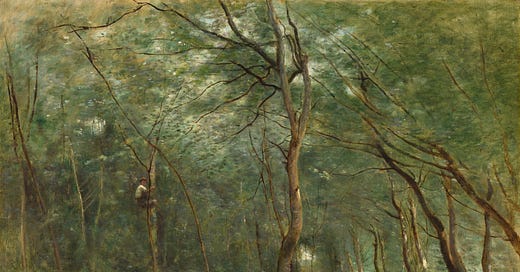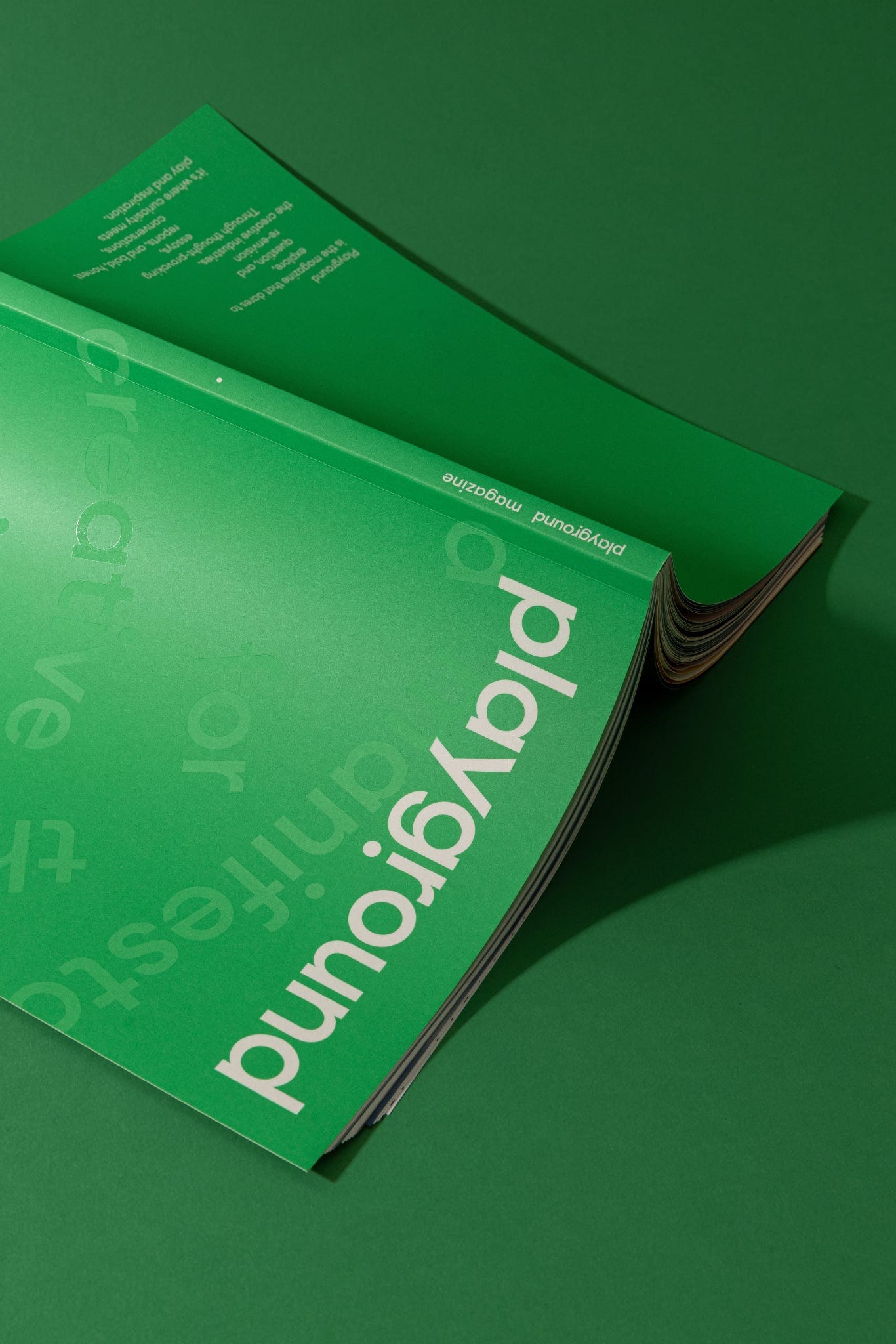Labas! Džiaugiuosi dalindamasis esė anglų kalba, kurią išspausdino puikusis kūrybinių industrijų žurnalas Playground savo trečiame numeryje.
Rutina ir nuobodulys mane persekioja kiekvieną dieną ne tik kaip banalūs faktai, bet ir kaip iššūkis kūrybiškumui. Substack’e apstu straipsnių ir sėkmės receptų su 10, 12 ar 112 patarimų, kaip rašyti. Man atrodo, jog kartais naudingiau ne tik žinoti, ką daryti, bet ir suprasti, kas leidžia sustirusią vaizduotę išlaisvinti iš užsisenėjusių perspektyvų ir apskritai nykesnių kūrybinio gyvenimo aspektų. Apie tai — šitame tekste. Su trumpais Italo Calvino ir Hanso-Georgo Gadamerio cameo.
Žurnalą galite įsigyti Raštinėje ir MO muziejuje. O jo įkūrėjos Austės Skrupskytės Cullbrand naujienlaiškį taip pat galite rasti substacke.
Kviečiu skaityti!
●

Writing is mostly sedentary work. I spend hours in the same spot writing essays and book reviews. Only occasionally do I nip outside to prevent a severe vitamin D deficiency. After a while, I start my monkey routine – I squat on my chair, swing in it, and pace from room to room. I become restless, my imagination becomes stagnant, writing - futile.
Then I go out, meet friends, and, if the budget allows, travel. Only then does my creative passion return, not just for writing new material, but for half-abandoned works-in-progress. Engaging with cultural and social environments disrupts familiar ways of seeing and interpreting the world, and revitalises the slumbering senses. But we don’t always have the time or money to travel abroad, change countries, or even cafés. And it’s not sustainable in the long run. How, then, can we cultivate creative freedom without relying on the privilege of travel or constant change?
Broadly, I can see two attitudes, mindsets, even lifestyles, defined by stillness and movement: ‘the settler’ and ‘the nomad’. The settler favours time, his creativity relies on discipline – he repeats routines, digging down into his creative efforts. In contrast, the nomad thrives on spontaneity and constant movement in cultural (and geographical) spaces; he opts for the new instead of the known. In my view, these two notions do not oppose one another, but are deeply entwined.
The freedom of nomadism is more intuitive when we compare the two. The nomad is rootless, his home is homelessness itself. He goes (in body or mind) wherever he pleases, takes on new activities with eagerness. The nomadic attitude lets us distance ourselves from our familiar surroundings. Throwing oneself into the strange and unfamiliar creates a paradox – a momentary loss of control grants the freedom to roam and be surprised. When we travel abroad, anonymity liberates us from being someone with social obligations to others to a nobody, who observes, listens, and reflects. The same goes with creative nomadism – venturing into unknown hobbies, fields, and interests, where you have no credentials and little to no skills, liberates us from our self-imposed expectations. Being a nobody requires courage to fail with the excitement of the amateur and not the irritation of the professional.
This is something that is apparent to the nomad, but that the settler tends to forget. Thus, we can, at times, feel entrapped by the settler’s mindset. Even creatively stagnant, especially if we do something for long periods of time. The better I get at my craft, the more crucial it becomes to maintain this nomadic spirit. But this is possible only by seeing how the nomadic is already ingrained in the settler.
Marco Polo, in Italo Calvino’s slim masterpiece Invisible Cities, recounts the story of Despina, a fictional city that offers two distinct experiences depending on whether you reach it by camel or by sea. We never have access to the full spectrum of possibilities of a thing. Our perceptions are always limited by perspective. Being practical and cost-efficient beings, we easily succumb to this perspective and its limiting effect in our daily lives. Not so much from a yearning for control, but from a quotidian laziness – the more our surroundings seem stable and fixed, the more we can direct our energy towards other tasks. We “settle” into our daily habits, feelings, and patterns of thought.
German philosopher Hans-Georg Gadamer coined the term Spielraum – a concept meaning ‘room for play’ within the boundaries of familiar knowledge and understanding. According to Gadamer, we cannot transcend our given understanding of the world, but we do have leeway to correct and, in doing so, expand it.
Take, for example, writing. When we begin a text, we often write poorly – not from a lack of talent, but because the language we use is filled with clichés and banal phrases. This language serves our basic needs of communication, so what more could we ask of it? But the more we write, the more familiar phrases and images (yes, like rhyming “ocean” with “emotion” in classic Eurovision fashion), lose their edge in expressing something artistically profound. A beginner writer must “write out” of themselves, forgoing the language that is given to make room for language that is discovered. I say “discovered”, rather than “invented” because we do not invent new language (which often leads to gobbledygook). Instead, we uncover new, uncharted meanings within familiar words. We discover exciting metaphors, images, and stories worth being told.
Spielraum for me illustrates that the nomadic element is already there in the settler’s mindset. The task then becomes liberating and harnessing it. Personally, my creative nomadism consists of exploring different genres – not just as a reader, but more importantly as a writer. Every literary genre – the essay, the opinion-piece, historic fiction, detectives, westerns, you name it – has its rules (though they are more like guidelines) that make it work. They are not there to limit creative expression, but to bring order to the chaos of human experience – and can be transcended when the need arises.
In the end, settling into the unknown opens the possibility of nomadism. The more we grow comfortable with new fields of knowledge, the more pressing questions arise. The more playfully we approach the challenges of creating something worthwhile. We find the urge to be drastic and adventurous not for the sake of it, but because the object of our passion, craft, or art demands it.
And all while sitting at our desks.




Thanks for putting it online too!